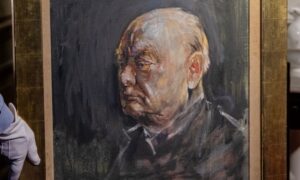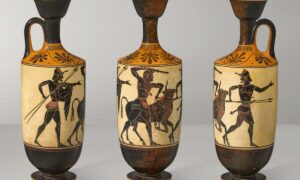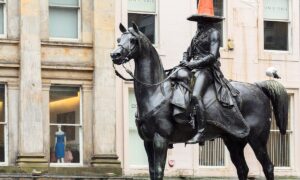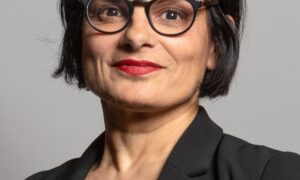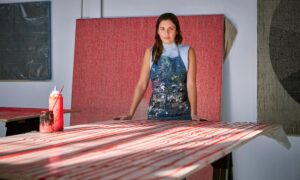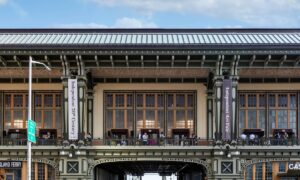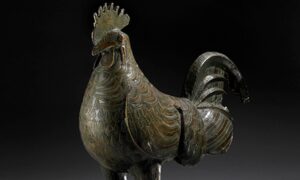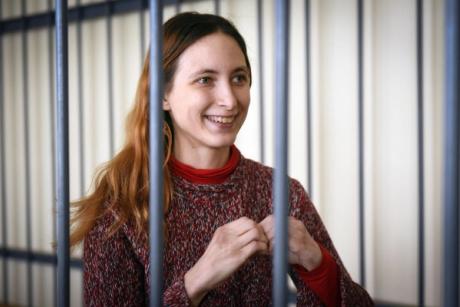
Russian prosecutors are seeking an eight-year prison sentence for Sasha Skochilenko, an artist in St Petersburg who protested against Russia’s invasion of Ukraine by replacing supermarket price labels with information about the destruction of Mariupol.Skochilenko is accused of disseminating “knowingly false information” about the Russian military, known broadly as the “law on fakes”, rushed through the parliament immediately after the 24 February 2022 invasion.Prosecutor Aleksandr Gladyshev made the request at St Petersburg’s Vasileostrovsky district court on 8 November, where the months-long trial of Skochilenko is drawing to a close. The presiding judge, Oksana Demyasheva, has scheduled closing arguments for Monday (13 November).The artist was arrested in April 2022 after a pensioner reported her labels to the police. Skochilenko’s case underscores the threats faced by artists in Russia, especially if they speak out against Russia’s war against Ukraine. Art on LGBTQ and feminist themes is also actively targeted as a violation of public morality.The Feminist Anti-War Resistance, founded by artist Daria Serenko, launched an action after the invasion to replace price labels at the supermarket with facts about destruction caused by Russia’s war. The movement, which operates via often-anonymous chats, at the time told Bumaga, a publication now blocked and declared a “foreign agent” in Russia, that it did not know whether Skochilenko had been in touch with them. Serenko fled Russia in March 2022.Judge Demyasheva has not allowed filming in the courtroom, but has allowed some of Skochilenko’s supporters in. Mediazona, the human rights news site founded by Pussy Riot’s Nadya Tolokonnikova and Masha Alekhina after they were released from prison in 2013 for their “punk prayer” against Russian President Vladimir Putin and Russian Orthodox Patriarch Kirill I, has provided a detailed day-by-day account of the trial.In court on 3 November, Skochilenko said that Russian society has broken into three groups over the war: those who support it without question, those who don’t care and a small group of pacifists like herself.“John Lennon was a pacifist,” she said, according to Mediazona. “Was he imprisoned? No, he was not imprisoned for his actions and statements. […] My humanistic values are the basis of my motivation. It was a huge journey for me when you decide to undergo psychotherapy and stop being fixated on yourself, on your problems, issues of your wealth and status—and turn to people. After that, you become more interested in their lives, their problems, their sorrows and joys.”Skochilenko was previously best known as an artist for her drawings illustrating her struggle with depression. Detailed information about her case and her work, including a link to her Book About Depression, is available on skochilenko.ru, a bilingual site created by her supporters.The artist has a number of health problems, including celiac disease, and has not received adequate medical care in prison, her defense has said. But Judge Demyasheva said last month that prison officials had informed the court that she is healthy enough to be transported to prison camp. Last year, Bumaga published Skochilenko’s notes and drawings about conditions during her first month in prison.After Wednesday’s hearing, some commentators in a St Petersburg social media group publicly praised Skochilenko for her courage, while supporters of the Putin regime, writing in the same group, called for a longer prison sentence.Numerous artists have been forced to leave Russia since the invasion. In a recent highly-publicized example street artist Philippenzo, who subverted official slogans such as the widespread use of the letter “Z” and turned them into anti-war statements, left the country in October under threat of criminal prosecution; an arrest warrant has since been issued. In a Facebook post this week he said police had fractured his shoulder when detaining him this summer.Anthropologist Alexandra Arkhipova has tracked grassroots anti-war street art in the form of graffiti and flyers from 50 cities across Russia, including comments such as “Bucha is our anguish” about the massacre of Ukrainian civilians committed by Russian troops in a suburb of Kyiv.Bumaga has also chronicled the case of Pavel Krisevich, a 23-year-old performance artist who was sentenced in October 2022 to five years in prison for staging his fake suicide on Red Square in Moscow as an artistic manifesto.Krisevich told Bumaga in correspondence from prison that imprisoned artists are working for the greater good, in the tradition of the avant-garde.“Our activities as artists and activists inspire people to engage in humanitarian pursuits and draw attention to issues,” he wrote. “Our task, like that of Mayakovsky’s LEF”—he said referring to the poet Vladimir Mayakovsky, initially a great supporter of the Soviet regime who killed himself in 1930—“is to create a sense of romance and an image of a beautiful country worth fighting for. Not only do we create this image, but we also gradually bring its embodiment closer.”

